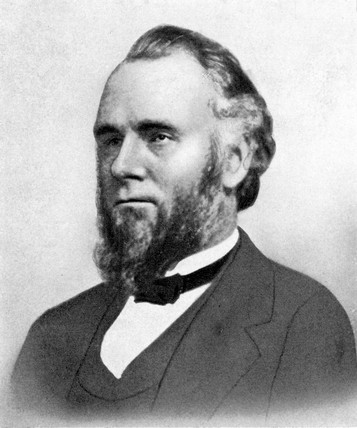Gallery
Pond's Belt Revolver
On its own merits, the Pond Belt Revolver was solidly made and very well executed. The hinge and barrel clasp were much more durable than Smith & Wesson’s, but the gun simply didn’t have the svelte lines of the Model 1. With the Civil War now raging, though, gun sales were through the roof. Even if Pond’s guns flagrantly violated patent law, Pond was willing to sell them and there were a long line of willing buyers.
All good things must come to and end, though, and Pond eventually found himself on the wrong end of a lawsuit from Smith & Wesson. His remaining stock was confiscated by Smith & Wesson and sold through their sales channels, and Pond had to come up with his next scheme.
An Honorable Man, Until He Wasn't
And so it went, with Pond producing a few other guns that sold only because the Civil War had created a dearth of guns in a country that loved to arm itself.
The real story came in 1875, though, when Pond went missing.
Like all industries, the machine tool business rose and fell with the whims of the market, and Pond had weathered the lows by forging checks. When his world started to crash down around him, he skipped town—first for Hamilton, Ontario; then for San Francisco; and then on a boat for Australia. Were it not for an intrepid detective that found him on the boat at the dock in San Francisco, he would have fled down under.
Pond was returned to Massachusetts, tried for his crimes, and sentenced to prison. But this was a guy who had plenty of charm, and within a few years he and his swelling cadre of friends and supporters had convinced the governor to give him a full pardon after having served less than half of his sentence.
I never saw a better man in this world and I never expect to, till I am in heaven.
Rev. William Pentecost, 1889
Pond returned home to Worcester after his time in prison, where he and his son (who had essentially taken over the machine tool business) continued to run things.
Lucius Pond died in 1889 and is buried in the Worcester Rural Cemetery in Worcester, Massachusetts. His obituary included this curious quote:
The dead man had richly paid the penalty of wrongdoing, and he bore his burden manfully.
I visit his grave when I’m up in the area and wonder what it would have been like to have a front-row seat to his many shenanigans.


One Response
A very interesting story and I would have never known who Lucius Pond was, if it were not for researching a beautiful Nickel or Silver plated Revolver made by his company. The S/N is 5xxx so I am wondering at what stage of the company’s life this remarkable revolver was manufactured,